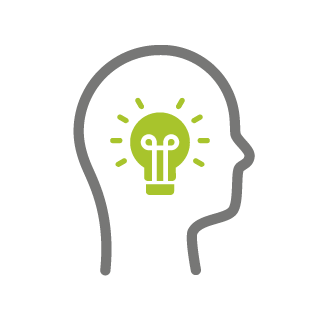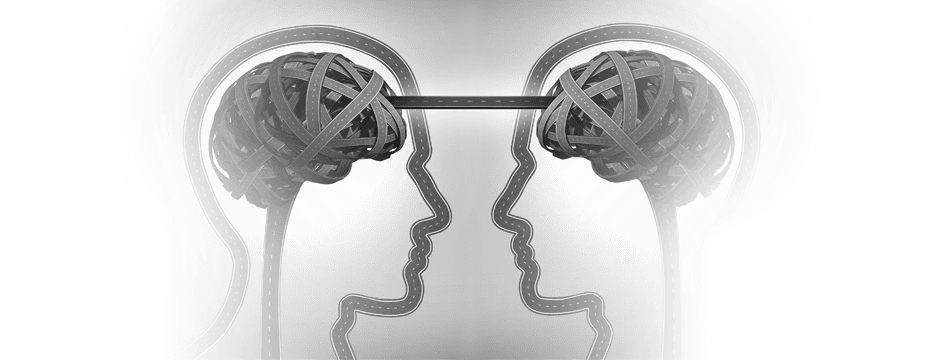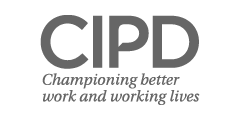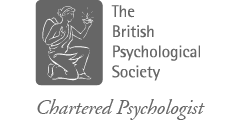
The old way of leading is no longer appropriate to respond to the expectations of employees and demands of being successful in today’s world.
High-performing teams don’t happen by accident. Leaders will need to use their human leadership skills to create real moments of connection in both the virtual and co-located office space.
Many leaders are needing to equip themselves for different types of conversations with their people . It’s about leading from a place of deep humanity.
The pandemic has revealed that we’re all human beings and no one is immune. Fundamentally, business is all about people, how they think, feel and behave and how they together develop important connections and relationships.
Humans have a fundamental need to belong. The successful leaders in the new world of work will be those that really understand in their stomachs, that leading is not a series of activities or processes but a series of connected human interactions. This insightful programme centres around rigorous, global, evidence-based research relating to how leaders can be more successful by tapping into not only their own humanness but also the humanity of their teams.
Why this matters
The essential skills for leaders have changed. In addition, the hybrid work model requires a new style of leadership with new skills and capabilities. Those leaders who have excelled have demonstrated their human side and show leadership capability to connect with people on a different level, demonstrating vulnerability and generating high levels of connection, belonging and trust in their people.
This includes the skills and confidence to motivate and inspire in a hybrid setting, have difficult discussions and negotiations, build deep meaningful relationships and networks, collaborate and innovate, hold people to account and give and receive feedback constructively and sensitively.
Absence of the human side of leadership will result in disengagement and significantly a massive business risk as a result of reduced motivation, poor relationships, reduced performance but also attrition of talent. Leaders often say they lack the understanding of how to enable their teams to work collaboratively, preferring instead to lead their teams through silos. Leading people who aren’t in the same physical space has become a crucial skill requiring new mindsets and ways of working and leading. It’s not about better performance of individuals but how they connect with each other that really matters.
Leaders and managers at all levels are now reimagining the new world of work in order to avoid unintended consequences. Leaders have a key role in facilitating connections and balancing the desire for flexibility with the need for collaboration. Leaders are developing skills to orchestrate conversations, balancing individual preferences with team and business requirements. It is now more important than ever to collaborate with their teams to design the ideal work model; encouraging experimentation, mentoring, assessing and evolving to the right solution. There is ‘no one size fits all’.
Part of this new leadership capability requires leaders to coach more around relationships; one to one, between team members and even between teams and into stakeholders, partnerships and networks. Leaders will need to use their leadership skills to create real moments of alignment and connection in both the virtual and co-located office space and facilitate their teams to feel energised to deliver but other teams’ clients and business partners. Without this, our performance and our commitment to the organisation and the teams we are part of, declines. Consequently, this saps our commitment, discretionary effort and the ability to be creative and innovate to drive forward the business. Some businesses are talking about the ‘relationship deficit’ internally and with their clients and stakeholders which can be mitigated when leaders infuse a people focus into the business and rebuild a dwindling sense of human connection.
The aim is also to create a strong cohort of human centred leaders who will most likely become the future senior leaders. If leadership challenges are not addressed it is highly likely that it won’t take long before the demotivation and detachment of their teams becomes visible, impacting team performance and a barrier to a leader’s progression. It is highly likely these leaders will become derailed and suffer from low wellbeing as well as create a substantial risk for the business.
What benefits can leaders expect?
The outcome of being a ‘people centred’ Leader is that the leader will be happier and more fulfilled and their people will feel more appreciated, more engaged and thus willing to give their time and energy to make themselves and their organisation successful. Participants will have a chance to reflect on their own experience, appreciate their own leadership style, qualities and strengths and enhance their skills to lead effectively. In essence they will learn new mindsets and behaviours that will free them to understand and experiment with their own personal ‘people centred’ leadership style.
This series of masterclasses includes practical, tried and tested tools and techniques for managing our emotions, how we are thinking and behaving, enhancing our motivation and how to have quality conversations with high levels of trust and connection. It creates a new way of thinking and builds capabilities and leadership habits that can be sustained. For leaders themselves it will not only enhance their own performance and that of their teams but importantly create more personal fulfilment and wellbeing. At the end of the programme leaders will:
- have a clear idea of what leadership means to them, their own personal style of leadership so they can lead more authentically.
- feel self-confident to make the right decisions and provide clarity in their communication; being more open and transparent even when they don’t have all the answers
- be more visible and accessible as a leader rather than being disconnected or remote and enhance their ability to influence their teams in a virtual and face to face setting
- emotionally collect to their people in order to engage, motivate and inspire them while also feeling that they are respected and seen as authentic and genuine
- develop skills and techniques for enhanced collaboration, creativity and innovation by enhancing a culture of learning and growth that also inspires teams to work effectively together
- rebuild strong connections and overcome the ‘relationship deficit’ that has occurred over recent years by building a sense of trust in their teams, colleagues, customers and business partners
- know how to define and communicate an inspirational vision and help people to see the bigger picture and get perspective and meaning so that people understand how their work contributes to the overall purpose
- know each person’s strengths and talents so they are place people in positions that play to their strengths and aspirations
- understand that people sometimes feel stressed, overwhelmed or lack confidence and enhance their ability to listen empathically so that people feel understood, valued and motivated
- create a diverse, psychologically safe and inclusive environment where people feel able to be themselves and are recognised for who they are and what they bring, mitigating against, ‘out of sight out of mind’ and ‘us and them’ scenarios in a hybrid setting.
Take a look at the ten modules of the Human leader programme:
The full suite or a selection of individual sessions will be tailored to each business context and priorities of the participants.
SESSION 1 – WHO YOU ARE AS A LEADER AND BUILD CONFIDENCE IN THE HUMAN DIMENSION OF LEADERSHIP. What makes you successful today? Understand your current leadership style, uncover your beliefs and the values that drive you. Leverage your personal strengths and passions and understanding why you do what you do, your purpose as a leader.
SESSION 2 – BEING WHO YOU REALLY ARE, IDENTIFY ANY OUTDATED SCRIPS OR STORIES AND REMOVE BLIND SPOTS THAT WILL STOP YOU FROM CREATING THE BEST CULTURE FOR YOUR PEOPLE. Managing your inner voice, increasing self-awareness and owning your success. Leveraging your unique combination of strengths and practice self-compassion to maximise your own potential and to create the best culture for your team.
SESSION 3 – BUILDING YOUR LEADERSHIP STYLE AND DEVELOPING FOLLOWERSHIP THROUGH MEANING AND ENGAGEMENT. Develop as an inspirational leader using strategies to build engagement and motivation. Developing vulnerability to have authentic dialogue with people. Have quality, honest conversations for a more energised, collaborative and effective team.
SESSION 4 – RESILIENCE: THE CAPACITY TO BOUNCE BACK AND MANAGE YOURSELF AND SUPPORT OTHERS AS WELL AS DRIVE THE BUSINESS FORWARD IN DIFFICULT TIMES. Consider what drains and energises you and recognise when your energy is low. Develop appropriate responses as to how you can deal with challenging situations. Rewire the brain and develop automatic habits to enable resilience. Develop strategies to recharge your energy and build resilience in your teams for the future.
SESSION 5 – HARNESSING YOUR SKILLS OF EMOTIONAL INTELLIGENCE AND TRUST. Manage your own emotions for self-regulation and enhance your ability to relate to others and forge stronger relationships. Understanding your ecosystem of relationships, clients and partners and develop your ability to generate trust and influence through political intelligence. Harness impactful conversations that make a difference to people, that are not just transactional to get the work done but build the relationship and trust.
SESSION 6 – MANAGING YOUR PERSPECTIVE AND A LEADER’S ROLE IN SENSE-MAKING. Improve the overall quality of your thinking as a leader and support your team in positively reframing unhelpful mindsets and ways of thinking particularly in the context of change and business transformation. Strategies for managing mindset and perspective to improve the overall quality of your thinking and decision making.
SESSION 7 – AN ENVIRONMENT FOR LEARNING, GROWTH AND TRANSFORMATION. Harnessing your ability to respond flexibly, innovatively, and optimistically. Develop your ‘tolerance of uncertainty’ muscle in the face of complexity and ambiguity. Breaking out of your comfort zone and embrace courage and risk taking with emotional, cognitive and learning agility.
SESSION 8 – CREATING A HIGH PERFORMING TEAM WITH MUTUAL TRUST AND PSYCHOLOGICAL SAFETY. Rebuilding trust and connection particularly where it has been depleted. Create an environment where team members have open and honest conversations, have strong connections, hold each other to account and have optimal ways of working. Build teams with high collaboration who take ownership for individual and collective results.
SESSION 9 – BEING A PEOPLE FOCUSSED TRANSFORMATIONAL LEADER. Become a people centred leader in managing business change. Articulate a compelling vision and develop new capabilities in leadership sense-making’ and storytelling to deliver massive buy-in and commitment – not passive agreement – so that people take personal ownership and drive change, identifying problems and innovating along the way. The role of community and mobilising influencers, invisible networks and building coalitions of support. Focus attention on creating leadership ‘moments that matter ‘to inspire mindset and behaviour shifts.
SESSION 10 – LEVERAGING DIVERSITY AND CREATE AN INCLUSIVE ENVIRONMENT WHERE PEOPLE FEEL ABLE TO BE THEMSELVES AND ACHIEVE THEIR POTENTIAL. Appreciate the demise of ‘one size of person fits all’ and embrace differences in how people think and behave differently. Create a sense of inclusion and appreciate the massive benefit of different styles in areas such as: solving problems, making decisions and assessing risks, engaging and communicating with others, building relationships, negotiating, and communicating with and leading others.
SESSION 11 – CONSOLIDATING YOUR NEW REPERTOIRE OF LEADERSHIP STYLES. Bringing it all together as a human leader. Uncovering obstacles that block personal change in order to lead with impact and authenticity. Understand how behaviour change happens by making change personal and creating and sustaining new habits of thinking and behaving. internalise your new identity of leading with impact and inspiration to create connected, high performing teams that are instrumental in driving the business forward.
Email sue@conder.co to find out more about how to make this happen.






